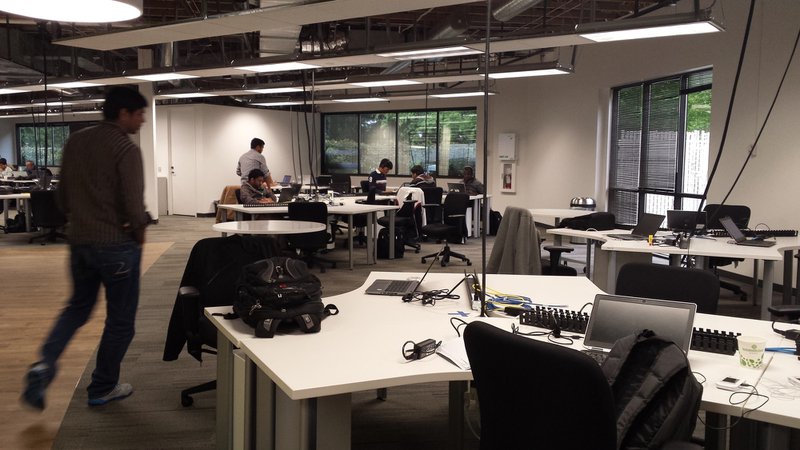
October 3, 2019
Break The Offshore Development Fad Before It Breaks Your Company
Software development is a vital skill for many US companies. Software development can be as much a part of a company’s needs as their supply chain, marketing, financial capability and engineering prowess. Software development is often part of the IT or engineering department within a corporation. Companies without a dependable technology base to develop custom software for their company are working at a disadvantage in today’s economy. Being able to generate custom reporting with databases or mobile app technology are needs in high demand and companies without these capabilities are getting beat up by their competition. Many won’t survive without taking action.


A large number of US companies have tried offshoring their software development as a cheap alternative. Software companies in India, Russia, South America and other countries have refined their marketing to appeal to CFOs and CEOs with low-cost hourly rates for their software developers. This often becomes the sole sales pitch and the primary decision point. Contracting rates for experienced offshore software developers can be $10 – $30 per hour compared with their US counterparts starting at $25 an hour and going up $200 or even $250 per hour for highly experienced contractors. The hourly cost is only one component of the total cost of a software project and C-Level staff often overlook that crucial point.
The thought process for a C-Level staff member starts with the perception that offshore software developers are 3-10 times cheaper than US software developers. They sell these ideas to their board of directors and put their reputation behind the idea. The list of US companies who have offshored thousands of US software jobs span the Who’s Who of the Fortune 500. A few of the offshore efforts have succeeded but the majority of companies find it’s not so easy to successfully develop software overseas. Just ask Boeing with their 737 MAX software solution which was outsourced to Indian talent for $9 an hour. The millions of dollars in software savings Boeing recognized with offshoring their 737 MAX software pales in comparison to the billions of dollars needed to pay airlines in compensation for the 737 MAX system failures which spanned multiple areas from hardware to software, grounded the aircraft for months and caused two planes to crash killing everyone on board. Company leaders often overlook the full cost of a software project choosing to focus solely on the hourly software rates.


After decades of offshore development efforts, many US companies are having a change of heart and bringing software development back to the US. The higher US software developer costs are justified after measuring the total cost of software projects and the time to market of US software efforts versus overseas efforts. Software projects outside the US suffer from communications problems due to time zone differences resulting in delays. Those problems are compounded by cultural differences resulting in mistakes and rework. Managing overseas software projects requires extra project management and expensive travel costs which bloat the total cost of overseas software development. Overseas software developers will often leave projects and go to a competitor down the street for a small raise resulting in retraining costs and further delays. Experienced companies have found that their overseas software projects finish later and at a higher cost than they had expected. Innovation can suffer also as many offshore developers simply take orders and do what is requested instead of challenging the solution to improve it.
Bringing Software Development Back To The US
Bringing software projects back to the US can be a challenge. Core knowledge of the software solution needs to be transferred back to a US team. Securing the code base and making sure intellectual property does not escape to other overseas companies is hard to control. Many companies start with an experienced US contractor team who can bring immediate expertise to a company to transition the code back to a US controlled repository. Experienced software developers are needed to review the code for quality and documentation. Some redesign of the software solution may be needed if it was developed incorrectly or if it did not meet the requirements of the users.


If the company wishes to have their own software staff, contractor teams can be instructed to work together with new company developers training them on the code and transitioning over the ownership. This process can be achieved in a few months to a year depending on the size and complexity of the software code. Many companies see the benefit of having a small software staff augmented by a team of experienced software contractors. The utilization and cost of the contractors can be controlled by the company effectively turning on and off costs when needed for projects. The overseas problems of time zones, cultural differences, overseas travel and management are all minimized when leveraging US software teams and contractors. The end result is a lower total cost of ownership with projects finishing quicker than overseas options.
If you or your company utilize overseas software teams, consider the total cost and risks. Using a US software team with US software contractors assisting often results in a lower cost solution with improved quality and faster release times. Flint Hills Group is staffed with experienced US software developers and can train your software teams on projects that were developed overseas. Our completion rate of projects will surprise you. We work closely with companies to ensure their software solution becomes exactly what they need. Reach out for a free estimate and see how you can take back control of your software projects.
Dave Cunningham
Founder and CEO
A seasoned technical leader with over 30 years software engineering experience, Dave is a passionate collaborator who brings teams together for success.




Dave Cunningham
Founder and CEO
A seasoned technical leader with over 30 years software engineering experience, Dave is a passionate collaborator who brings teams together for success.

